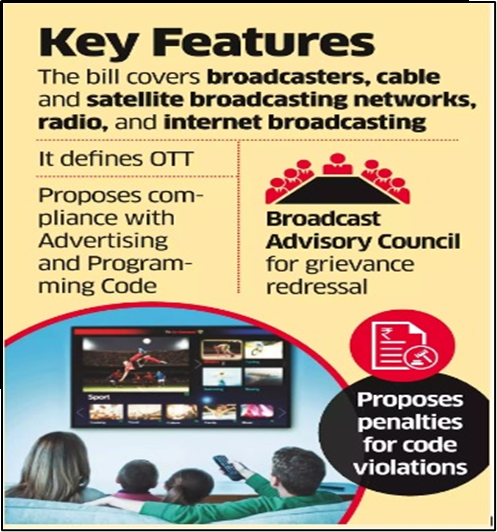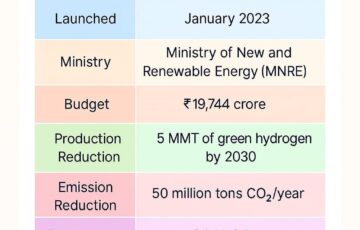NEW DRAFT OF BROADCASTING BILL TO ADDRESS CONCERNS
Why in the news?
The Ministry of Information and Broadcasting will release a revised draft of the Broadcasting Services Bill after stakeholder feedback highlighted issues, especially regarding the classification of online content creators.
source:scribd
About Broadcasting Services Bill Draft Update:
- Fresh Draft Announcement:
- The Ministry of Information and Broadcasting (MIB) will release a new draft of the Broadcasting Services (Regulation) Bill, 2024.
- This decision follows stakeholder feedback and concerns about the previous draft circulated on July 24 and 25.
- Stakeholders, including streaming platforms and social media companies, have been asked to return watermarked copies of the outdated draft.
- Consultation Process:
- The draft was first made public on November 10, 2023, with a call for stakeholder comments.
- The MIB is extending the consultation period until October 15, 2024, to address the issues raised.
- Concerns include the potential classification of online content creators as broadcasters, which has sparked significant debate.
- Controversial Provisions:
- The latest draft faced criticism for potentially labelling all online content creators as broadcasters.
- The government has held multiple consultations with various industry players, including major tech companies and streaming services.
- It remains unclear if the entire draft will be redrafted or only specific sections will be revised.
About the Draft Broadcasting Services (Regulation) Bill 2024:
Key Features: Definition of Digital News Broadcasters:
Code of Ethics: Validates the IT (Intermediary Guidelines and Digital Media Ethics Code) Rules 2021, which are currently stayed by Bombay and Madras HCs. Content Evaluation Committee (CEC):
Concerns: Freedom of Speech:
Exemptions:
|





